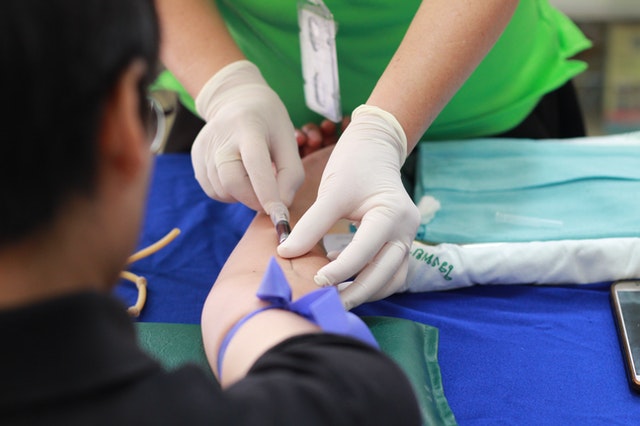President Richard Nixon officially proclaimed the month of January to be National Blood Donor Month on December 31, 1969. January is the first month of the year, offering a fresh start in the new year to all. By becoming a blood donor, you can give a fresh start to someone who really needs it.
Donating blood is an extremely important process. Blood donors help millions of people to survive every day; blood transfusions can save lives. As stated by the American Red Cross, which began collecting blood donations for people in 1940, someone in America has a critical need for blood every two seconds. Case in point: a single car accident victim may need up to 100 pints of blood to survive. Further, according to the Mayo Clinic, blood transfusions “can help replace blood lost due to surgery or injury” and “also can help if an illness prevents your body from making blood or some of your blood’s components correctly.” Eligible donors are constantly needed to give blood, which can be done at almost any hospital or blood bank across the nation, or at mobile locations that host blood drives–while approximately 37% of the US population is eligible to donate blood or platelets, less than 10% actually does.
During the winter there is an increased demand for blood and platelet donations because seasonal illnesses triggered by inclement weather conditions are more common than ever. Winter is also the time when donations of blood and platelets decline which can mean the demand is not met. The American Red Cross and others encourage everyone who can donate to continue doing so for as long as they are able, and suggest that those who have never donated become volunteer donors.
Besides the direct benefit to recipients of donated blood or platelets, donating blood is also good for the health of volunteer donors. Donating blood can be good for a donor’s overall health; it can help reveal any specific potential health issues that he or she might have early enough for treatment to be sought. It also can help reduce iron levels for those with too much iron in their blood, as well as protect against cardiovascular disease, and decrease high blood pressure.
There are four main blood types: A, B, AB, and O. The most requested blood type is type O because type O blood can be transfused to patients of all blood types–it is always in great demand but very short supply because only about 7% of people in the US have type O blood. People with type O blood especially should consider blood donation; they can contact the American Red Cross or any local blood bank for more information.
Donating blood is a simple and safe process that usually takes an hour or less. It is important that blood donation takes place in a hospital, a clinic, or a blood bank, in the presence of medical professionals. As the COVID-19 pandemic continues, the American Red Cross is testing all blood, platelet, and plasma donations for COVID-19 antibodies to help meet urgent patient needs. If you are eligible to donate blood, all you have to do is register; give a brief medical history; and make and keep an appointment to donate. Your single donation will garner about one pint of blood, which can help up to three people, positively influencing both your and their lives.
Quick Claimers Medical Billing is a medical coding and billing company based in El Paso, Texas. Quick Claimers is committed to serving healthcare professionals by providing effective and impactful medical coding and billing solutions tailored to each provider’s individual needs. If you would like more information about the services Quick Claimers provides, please contact them by visiting their website, by email at info@qcmbinc.com, or by phone at 915-351-6600.

